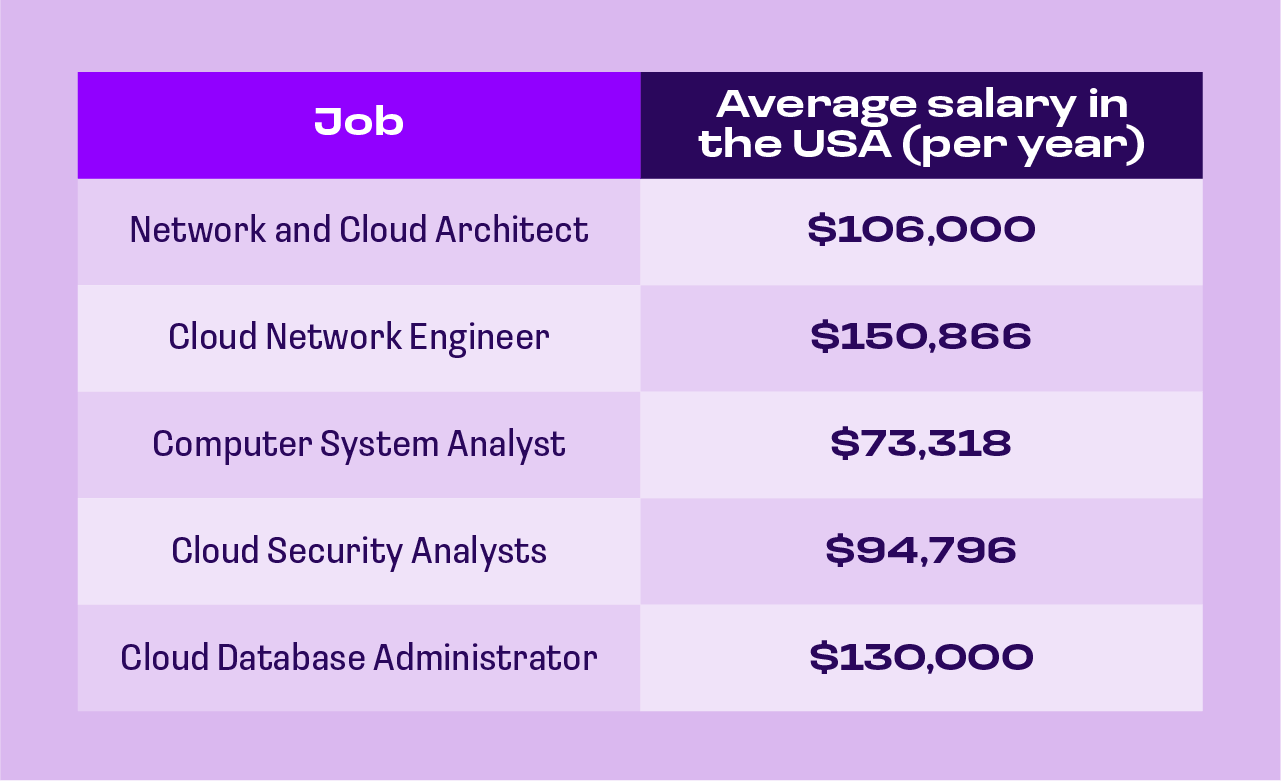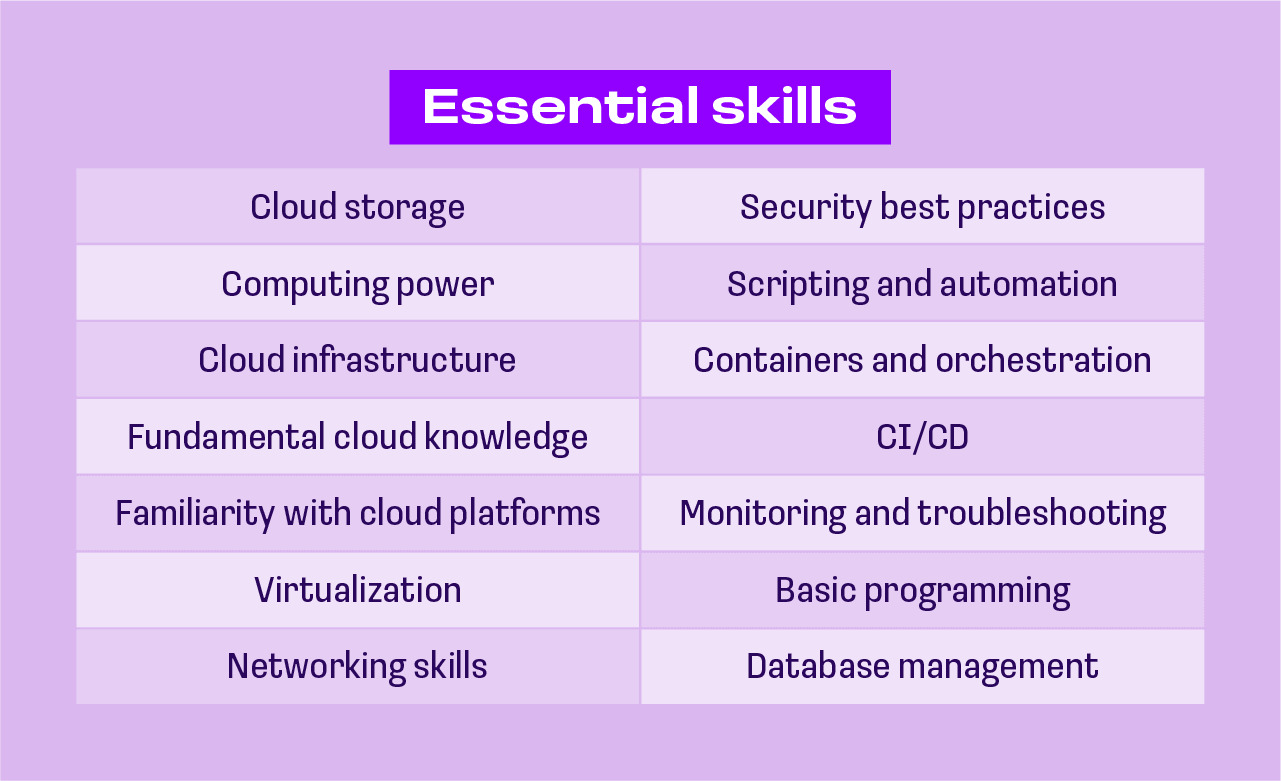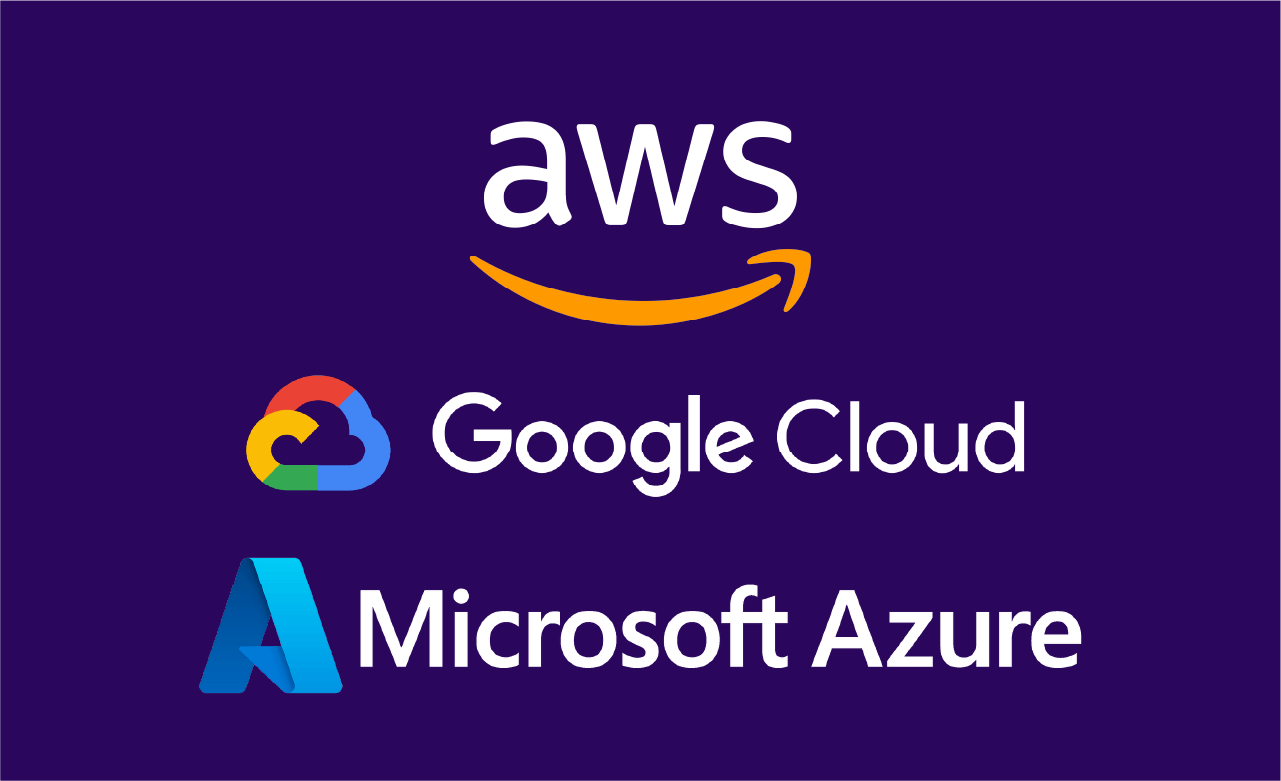Cloud Computing Career Path: Opportunities and Insights
The author of this article is tech expert Pieter Murphy.

Cloud Computing Career Path: Opportunities and Insights
Cloud computing may sound intimidating for those who are interested in learning about it but are unfamiliar with it. Simply put, this type of distributed computing is an internet service that offers storage capable of housing all the applications and programs typically used on local PCs. Google Drive is an example of how the concept works.
The industry not only makes things like video games and media streaming possible but also enables organizations and businesses to scale their operations as they grow and makes remote work possible.
Professionals who design, build, protect, and maintain cloud computing systems ensure that all this goes off without complications. But how can you get started down this cloud career path, and where will it lead you?
In this article, we’ll explore the current job market and future possibilities, cloud computing career options, the skills you will need as a beginner, the top service providers, cloud computing career paths and certifications, and tips to build a career in cloud computing.
Current Job Market and Future Trends for Cloud Computing Roles
Cloud computing services include storage, networking, databases, servers, software, analytics, and intelligence. These services enable rapid innovation, economic frugality, and adjustable resources.
The demand for professionals in the field has risen among many companies because their services reduce operating expenses, enhance efficient infrastructure, and optimize the business side according to the necessary changes. Cloud computing career options are relatively new in the IT world.
Why Is Cloud Computing in Demand?
Before COVID-19, companies relied on in-house hardware technologies, but even then, a sluggish move toward cloud servers could be observed. It was during the pandemic that the shift towards cloud computing path escalated rapidly, and demand for experts soared.
Companies either had to adapt or risk failing to fulfill their customer demands. The services and advantages it offered have also been instrumental in helping industries restore the huge losses caused by the pandemic, making becoming a cloud engineer attractive for many in the IT space.
After the pandemic, this field has grown at an unforeseen pace and created more job opportunities worldwide.
Cloud Computing Market Size
The recent years have seen an enormous spike in the growth of this industry. In 2020, it was estimated that $252.5 billion was spent on various public cloud services, and according to a more recent statistic, $304.9 billion was paid to public providers. This great demand for distributed computing has made it one of the highest-paying jobs.
The associated skills and jobs are currently ruling the tech market, with approximately 89% of global companies using Software as a Service (SaaS). IaaS is the fastest-growing service with a CAGR of 33.7%. The level of security received 93% positive feedback from various business ventures.
Switching to this model reduces human error by 88% and protects the confidential data of 75% of businesses. These impressive statistics demonstrate the serious demand for experts.
Salary Trends and Predictions for 2025 to 2030
The demand for distributed computing platforms brightens the future of jobs in this arena. According to reliable forecasts, it has the potential to generate a $154.94 billion in profit by the year 2030.
This means the sector will surpass the financial, banking, and information sectors in profits, presenting many opportunities for individuals with the required computing skills.
Cloud Computing Jobs in Demand
1. Network and Cloud Architect
Network architects usually work together with IT teams. Their role is to design, plan, and upgrade different projects. To become a cloud architect, you will need a deep understanding of the current technologies and network handling.
The salary of a Network and Cloud Architect varies from one part of the globe to the other, but in the US, it hovers at $106,000 per year.
2. Cloud Network Engineer
A Cloud Network Engineer maintains a company’s network as well as services. To start a cloud computing career in this role, you must know how to design and handle daily support. You will also be tasked with finding the best provider for the organization’s needs. To be a Network Engineer, you need previous experience with server infrastructure, interface, and security.
A network engineer’s salary averages around $150,866 annually in the US.
3. Computer System Analyst
A computer Systems Analyst is responsible for updating the organization’s core system and processes with the latest technologies to sustain the competition. They help to facilitate a smooth transition to the microservices architecture.
In the US, their average salary is USD 73,318 per year.
4. Cloud Security Analysts
Security Analysts safeguard the security of a company by taking various measures. They must spot potential security threats and flaws while moving towards a public provider. This role requires knowledge of new security protocols, CSE, and authentication.
Some substantial knowledge about MS Azure and AWS will be advantageous. A Security Analyst earns around $94,796 annually in the USA and INR 814,386 in India.
5. Cloud Database Administrator
The primary role of the database administrator is to handle data over the servers. They guide companies with new technologies like blockchain and Artificial Intelligence (AI). They work with managers and customers to find the best ways to fix issues.
This job requires knowledge of Machine Learning (ML), Azure, AI, and DevOps.
The Database Administrator earns about USD 130,000 annually in the USA and INR 5011,660 in India.

Essential Skills for Beginners in Cloud Computing
Cloud computing is a good career. Here are some of the fundamental skills required for a fruitful IT career in this computing domain:
Cloud Storage
Before you choose cloud computing as a career, understand object storage concepts and common services like Amazon S3 or Google Cloud Storage and learn about block storage solutions such as Amazon EBS or Azure Managed Disks.
Computing Power
You should acquire proficiency in deploying and managing virtual machines and familiarize yourself with serverless architectures using services like AWS Lambda or Azure Functions.
Cloud Infrastructure
When you decide to get into a cloud computing career, you must first gain skills in networking fundamentals, including virtual networks, subnets, and security groups; you should also learn about load balancing for high availability and fault tolerance.
Fundamental Cloud Knowledge
This involves understanding the basics of distributed computing, including service models - IaaS, PaaS, and SaaS, visualization, and deployment models - private, public, and hybrid. This is the bedrock upon which you will build proficiency.
Familiarity with Cloud Platforms
To start a cloud career, you must be proficient in using platforms such as Azure, AWS, and Google Cloud. This involves deploying resources, navigating their interfaces, and optimizing configurations according to specific requirements.
Virtualization
This lets one physical server run multiple virtual machines, each with its OS. This skill is necessary for efficient resource isolation and utilization in distributed computing.
Networking Skills
When embarking down a cloud pathway, you need knowledge of configuring networks within this environment, including VPNs, subnets, AWS security groups, and load balancers. It ensures efficient and secure communication between resources.
Security Best Practices
You need knowledge of security measures to protect sensitive data. This involves encrypting data, setting up access controls, and adhering to compliance standards to protect against cyber threats.
Scripting and Automation
For automation of tasks, you require proficiency in scripting languages such as PowerShell and Python. This skill is required to manage workflows and resources efficiently, and it will make a career in cloud computing a breeze.
Containers and Orchestration
Containers make it easy to deploy applications and their dependencies because they encapsulate them. Orchestration tools such as Kubernetes automate the management of the containers to ensure seamless scaling and deployment.
Continuous Integration/Continuous Deployment (CI/CD)
CI/CD automates the building, testing, and deploying software process. This fastens development and ensures that any code change is efficiently deployed and integrated into cloud environments.
Monitoring and Troubleshooting
This skill entails setting up and monitoring specialized solutions to track the health and performance of resources.
Basic Programming
You should learn Python or a similar scripting language for automation and understand API interaction and basic programming concepts.
Database Management
You should be proficient in relational database management (e.g., MySQL) and NoSQL databases (e.g., MongoDB). Try and explore cloud-native database services and data migration strategies.

Top Cloud Service Providers
Knowing what you’re interested in and what you want to accomplish should be among the first steps when starting a career in the cloud technology. You could get certifications from several providers, including the following:
Amazon Web Services (AWS)
AWS cloud career pathways are plentiful, and like with almost all other areas of specialization, the demand for the skills outpaces the supply. This can benefit you, especially if you’re getting into entry-level jobs.
AWS is often the best choice when starting a career in cloud computing because it is the closest thing to a household name in the industry. At the same time, focusing on other cloud careers and even specializing in them can mean wonderful things for your career.
Microsoft Azure
Should you get Microsoft Azure Certification? The answer is yes. Although AWS is still the public frontrunner, the gap is closing. The last couple of years have seen Azure adoption increase while AWS's remains relatively flat. As Microsoft tries hard to push into the enterprise space, more businesses adopt Azure.
Additionally, Azure has historically been preferred for hybrid deployments because it integrates seamlessly with Microsoft solutions that businesses used to rely on.
Google Cloud Platform
Where GCP is used, you need to know how to use it. The company offers several certifications that progress from Associate, Professional, and, finally, Specialty. It takes you from the beginner level, where you learn the foundational skills and understand the platform.
You can access free and paid courses, guides, and labs to help you prepare for exams at all levels. At 9% of market share worldwide as of Q4 2021, GCP offers enough opportunities for you to consider the time and effort required to take and pass the tests for certifications.

Cloud Computing Education Pathway
Cloud computing experts must have a bachelor’s degree in information technology, computing, or network administration.
Some colleges and universities may offer a degree in the field as a specialization paired with a bachelor’s in management information systems, computer science, information technology, or business analytics.
You can also switch a career to cloud computing if you already work in an adjacent field and have gained considerable experience to give you credibility.
Certifications from Well-Known Providers
A cloud computing portfolio also depends heavily on product certifications. Earning a certificate from relevant vendors shows you have competency in systems that take time to learn. GCP, Microsoft Azure, Amazon Web Services, and CompTIA Cloud+ offer top certifications.
AWS Certifications
AWS certifications are ranked among the highest-paying certification salaries in tech, and they usually appear the most in job board search results.
There are four AWS specialties and certification levels with different prerequisites and scopes. Which AWS certification is right for you? To find out, research and see what is expected for each one and the doors each will open. Here are the certifications at each level:
Foundational
No prior experience needed
Cloud Practitioner.
Associate
Strong on-premises IT and/or prior experience recommended
SysOps Administrator
Developer
Solutions Architect
Data Engineer.
Professional
At least two years of prior AWS experience is recommended.
Solutions Architect
DevOps Engineer.
Specialty
Extensive experience is recommended, with each specialty requiring specific prerequisites.
Advanced Networking
Database
Machine Learning
SAP on AWS
Security
Data Analytics.
Azure Certifications
The Azure Fundamentals Certification is usually the starting point for most. However, there are still over a dozen Azure certifications, with the top-paying ones being the Azure Administrator Associate and the Azure Solutions Architect Expert.
Google Cloud Certifications
In 2019 and 2020, Google Certified Professional Cloud Architect certification was the highest-paying IT certification in the market. Money isn’t everything and should probably not be the only reason to pursue a GCP-oriented career, but it’s hard not to take notice of an average salary of around $175,000.
GCP certifications range from foundational-level basics for beginners to role-specific certifications tied to some of the most in-demand jobs available.
Importance of Networking and Building a Cloud Computing Community in Your Career Path
Building a network and community in your cloud computing career path offers several significant benefits:
- Continuous learning
Connect with other professionals in the field to exchange insights and ideas. This may give you access to shared resources and discussion forums where you can grow your knowledge. - Career opportunities
Your network may expose you to available cloud computing career opportunities and help you showcase your expertise and achievements in the best light to attract potential employers. - Professional Support and Development
Experienced professionals may offer mentorship, career advice, and collaboration and support you as you face challenges in your career path for cloud computing. - Adaptation to Industry Changes
Networking can give you valuable insights into industry trends. - Innovation and Self-Confidence
You become innovative when exposed to diverse perspectives, and a supportive community will surely enhance your professional confidence.
Entry-Level Job Opportunities in Cloud Computing
The following are some of the entry-level job opportunities available on reputable job search websites like Indeed and social media platforms such as LinkedIn:
Desktop Technician
Support Engineer
Quality Assurance Engineer
Field Engineer
Junior Developer
Junior Engineer
Junior Security Analyst
Entry-level Consultant
Junior Data Engineer
Technical sales Associate - Cloud Solutions
How to Get Your First Job in Cloud Computing
Here are six tips that you can follow to get your first job in the industry, even with little or no IT experience:
Upskill yourself
Sign up for online courses
Apply for internships
Start an apprenticeship
Look for a graduate program
Reach out to your network
Prepare for an interview!
Paths for Career Advancement in Cloud Computing
Cloud computing as a career offers a lot of room for growth. The following is a layout for five different paths for cloud computing career growth so that you can know what to expect.
Cloud Security
Cloud security excerpts ensure the organization’s data is safe from unauthorized access, breaches, and other cybersecurity threats.
They require knowledge of cloud computing and data security to develop new safeguards as cloud computing technology evolves, monitor the systems, and resolve cybersecurity threats that may arise.
In general, college graduates with a degree related to cybersecurity or cloud qualify for numerous entry-level jobs, and they can then progress to senior positions like principal information security analyst or senior information security analyst.
Cloud Architecture
Cloud Architects design the infrastructures for organizations. The systems must support the objectives and goals outlined by the organizations.
The responsibilities of architects require them to have several years of experience before landing the job.
Machine Learning
Machine Learning engineers are responsible for designing and implementing machine learning models, optimizing algorithms for deployment, and managing data pipelines.
Cloud Administration
The administrators work with other professionals like architects and engineers to maintain an organization’s systems and ensure smooth and efficient running.
They start a career in cloud computing as junior admins or in a related junior position such as a help desk technician.
Cloud Engineering
Cloud engineers build and maintain a company’s IT cloud infrastructure. They typically enter a cloud computing career as junior engineers before becoming cloud engineers and later moving on to senior roles like senior engineer or cloud engineer II.
Conclusion
As this article demonstrates, the future of career options in cloud computing is bright. Its popularity will continue to grow due to its numerous benefits.
More businesses will move their operations to the distributed model to reap the benefits of its scalability, flexibility, and potential for increased collaboration and productivity. Improved security for cloud-based systems will continue to attract more businesses.
Predictions show that the price for these services will drop, making it an affordable option for companies of all sizes and creating jobs available in virtually all sectors.
To sum it up, if you want to start your career in cloud computing, you couldn’t have picked a better time or career path. All the best in your journey!

.png)
